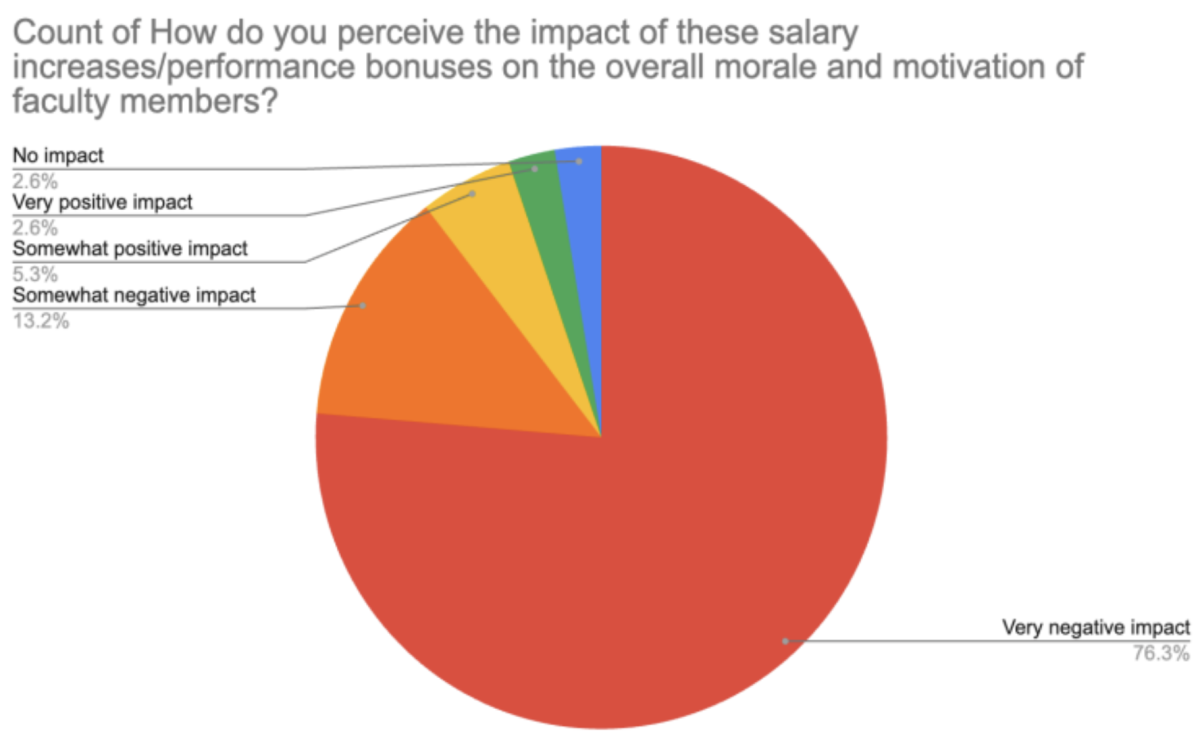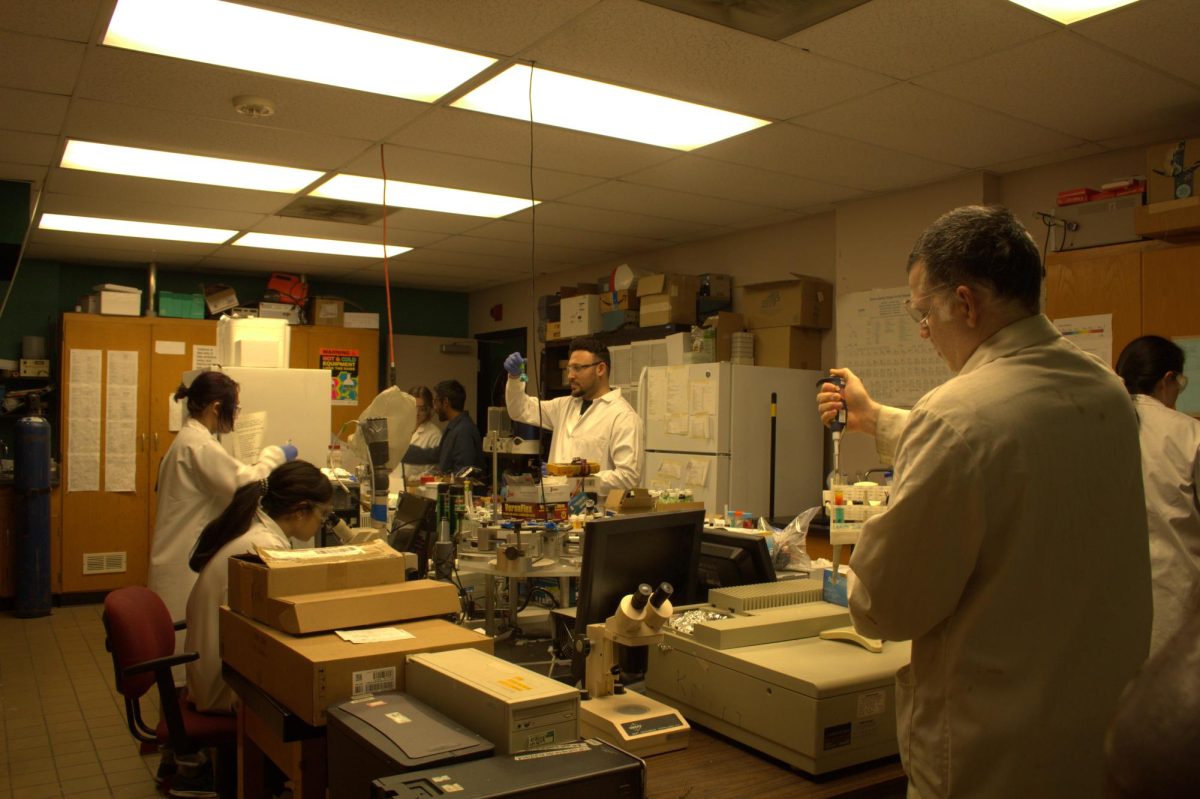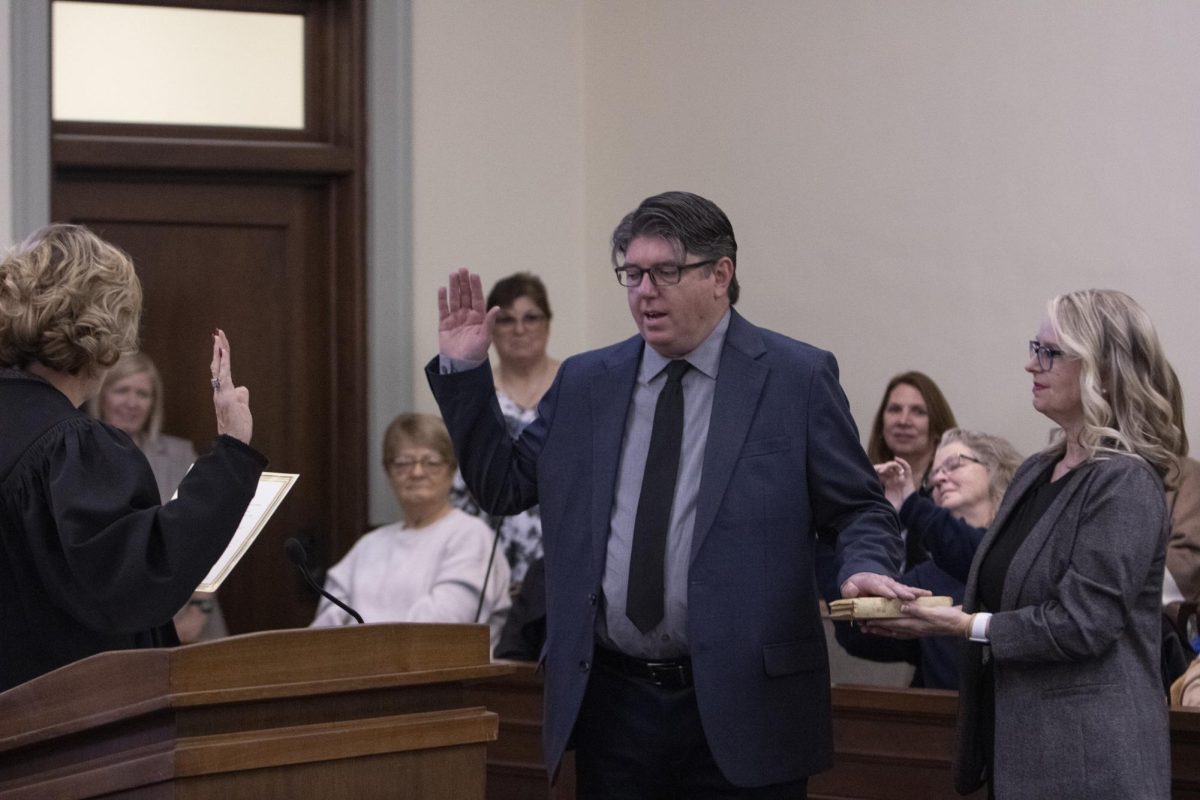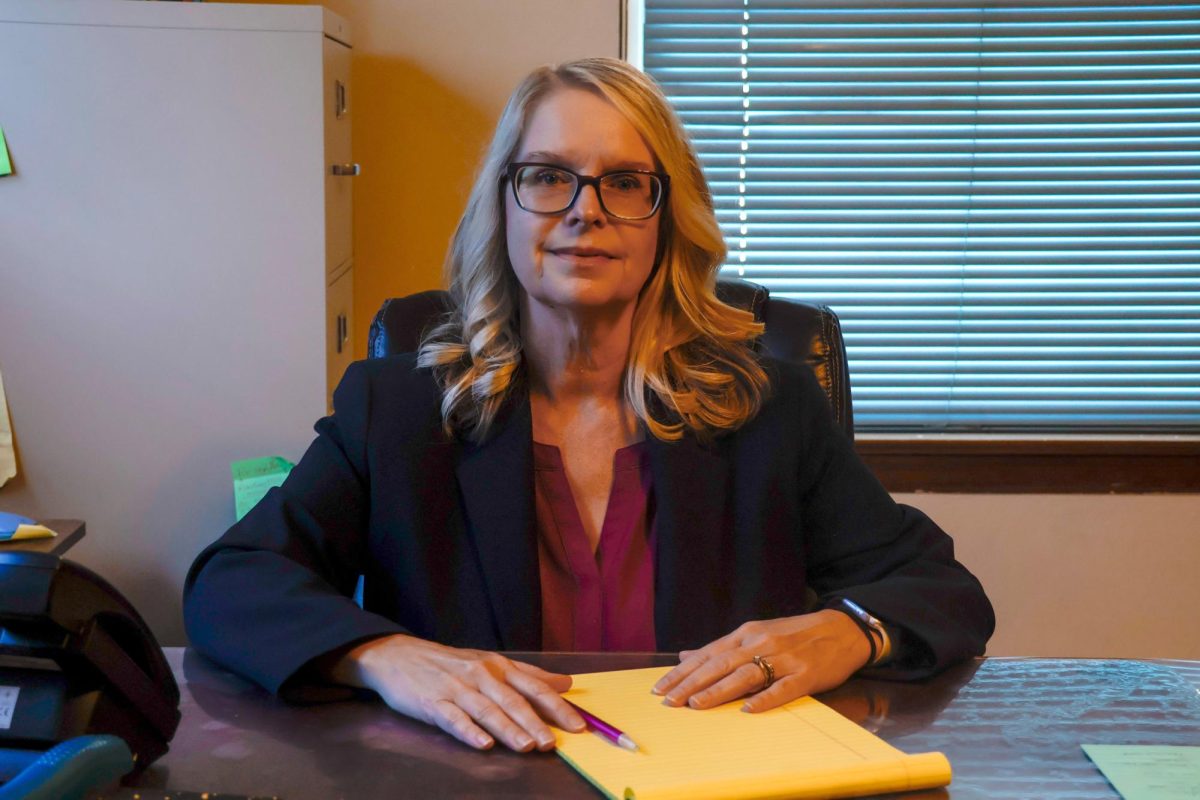In the wake of salary increases and bonuses awarded to some of SIU’s top administrators, faculty and staff across campus are offering diverse reactions, ranging from concern over university priorities, to acknowledgment of the competitive pressures that leadership faces.
This comes after the SIU Board of Trustees approved significant bonuses on July 11 for both Chancellor Austin Lane and System President Daniel Mahony, and approved a title change for Wendell Williams.
Advertisement
Williams was promoted to Vice Chancellor for Enrollment Management, a title change that came with a salary increase. Previously earning $165,000, his salary was raised to $185,203, a change Lane recommended due to Williams’ responsibilities in managing enrollment and strategic planning, according to previous reporting by the Daily Egyptian.
Meanwhile, Lane and Mahony received bonuses as incentives for their work. The incentive compensation is included in both administrators’ contracts with the university. While the condition allows for annual performance bonuses, it does not mandate that they be awarded.
A member of the SIU system communications team declined a request for comment from Lane and Mahony.
However, SIU Board of Directors Chairman, Phil Gilbert, confirmed that his previous statements regarding the board’s approach to leadership evaluations and performance bonuses, as discussed in the Daily Egyptian article about student and alumni opinions, remain relevant for this discussion as well.
Advertisement*
“SIU is committed to strong ethical standards,” Gilbert said. “We always welcome public input, though the board is committed to making decisions that are in the best interest of the university system as a whole. The board works to fairly evaluate our administrators on a regular basis; we do not evaluate the performance bonuses of our leaders through an anonymous survey.”
He continued, “These leaders are under contract, but they are required to achieve performance goals that are set each year. If they aren’t hitting the goals, they’re not entitled to this incentive pay.”
Continued collaboration between partners
Jeffery Punske is the president of the SIUC Faculty Association, an organization that works to ensure faculty have a say in university decisions at SIU. It represents all tenured and tenure-track faculty, except those in the medical and law schools.
“The Faculty Association has concerns about the financial health of the institution and will continue to work closely with administration to address them in a way that is to our mutual benefit,” Punske said. “As indicated by the recent enrollment news, the shared work between SIU’s faculty, staff and administration is paying dividends. We look forward to continuing to collaborate as partners with administration.”
As of Sept. 4, SIU overall enrollment for the 2024 fall semester grew by 3.8%. The IMAGiNE 2030 plan at SIU is led by the university’s administration, with input from faculty and staff across the campus. The initiative is driven by various administrative leaders, including the Chancellor’s office and other key academic and operational departments, who oversee its implementation.
One of the goals of the program, as outlined in the IMAGiNE 2030 plan, was to “Imagine 15,000 students enrolled by 2030”. The university surpassed its fall 2024 target with 11,790 students enrolled.
Punske said, “As SIU continues to move forward and move to R1, there needs to be continued reinvestment in our faculty, staff and students. We all have been asked to take on more for less for some time. Our new CBA [Collective Bargaining Agreement] and our salary reopener make critical steps to address these issues. But there is still significant work.”
According to the FY 2025-2028 agreement, the new CBA offers significant changes in several areas, particularly around addressing salary compression. It provides raises for Full and Associate professors along with a minimum of $1.2 million in additional funding after a salary study. Promotion raises will also increase. Over the four years, faculty are guaranteed approximately $5.4 million in total raises.
SIU aims to become a Carnegie R1 university, a designation that signifies a high level of research activity. To achieve and maintain this status, it’s crucial to attract and support top-tier graduate students and faculty.
“Regarding the additional compensation for the president and the chancellor, it is my understanding that these elements were promised at the point of hire. We believe the Board of Trustees should honor all employment agreements that are made. We hope to see faculty and staff be given similar priority,” Punske said.
The Daily Egyptian completed a survey from Aug. 20 to Sept. 6. Over the course of that time, 399 total respondents self-identified themselves as students, faculty, alumni and community members.
Respondents were asked the question: “Do you agree with the decision to increase the salary of SIUC Associate Vice Chancellor Wendell Williams, and give performance bonuses to Chancellor Austin Lane, and SIU System President Daniel Mahony?”
Faculty and staff members answered as followed:
FACULTY:
- 5.1% strongly agree
- 2.6% somewhat agree
- 10.3% neutral
- 12.8% somewhat disagree
- 69.2% strongly disagree
STAFF:
- 6.9% strongly agree
- 6.9% somewhat agree
- 3% neutral
- 13.9% somewhat disagree
- 69.3% strongly disagree



Tim Janello is a retired faculty member as of July 2023. He was an associate professor in Automotive who conducted the Diesel Engine Performance and Emissions class.
Janello wrote in an email to the Daily Egyptian, that the university’s overall priorities and mission are administration centric and uncaring about students, programs and workers.
“They change student services constantly seemingly without a plan, ignoring what works,” Janello wrote. “They keep putting off improvements for admin salaries and additional administrators. They have no money to keep or attract top personnel. No funds for IT issues causing student learning to be hampered…Admin salaries should be based on performance metrics by a survey of the entire campus.”
Janello explained that these issues have contributed to a decline in faculty morale over the past 15 years.
“They are running off good people by low salaries and high demands, to be replaced by low knowledge individuals but increasing their pay. Makes zero sense. Morale is extremely low,” Janello wrote.
He said the university could do better to address the needs and concerns of both faculty and students in light of these budgetary decisions by being communicative and understanding leaders.
Janello wrote, “No students, no need for admin. I have a feeling these administrators are seeing how much money they can get out of SIU for however long, then leaving. They are only interested in self. No leadership at all.”
‘Exorbitant bonuses are out of line’
Aaron Lisec, a research specialist at Morris Library, has been with SIU since 1990. He sees the bonuses as out of line with the university’s financial reality and its mission.
“Higher administration at SIUC is already more than adequately compensated given the comparatively lower cost of living here,” Lisec said, calling the bonuses “exorbitant,” especially as staff salaries have stagnated.
Lisec said, “I’ve witnessed ups and downs during my time here. I think we’ve suffered in general from too much turnover at the top, but I don’t think that’s due to inadequate compensation. I think the biggest overall problem, the long-term decline in enrollment, is largely due to demographics and other factors outside the university’s control.”
These factors include the rising costs of tuition and student loan debt; the growth of online and alternative education options; and doubts about the value of a college degree or the relevance of specific degree programs in today’s job market, he said.
“Of course it’s worth the effort to try and attract and retain more students, but again, I think that any success is due to outside factors as much as any efforts within,” Lisec said. “But I’m only an observer, not an expert.”
Within the survey, many respondents expressed frustration over the contrast between administrative pay raises for the retention of students and the lack of compensation increases for those who work on the ground.
“Many of us on campus have had little increase in salary over the last ten years or longer. Many in Civil Service barely make a living wage, despite providing essential day to day services that keep the university running smoothly,” Lisec said.
He noted that these long-standing issues make the current emphasis on compensation reviews particularly critical.
Lisec said, “AP and Civil Service staff were recently pressed to complete a complicated and time-consuming survey that essentially asked us to verify our job descriptions, supposedly in the interest of seeing how our compensation compares with other universities.”
On July 22, Civil Service and AP staff received an email launching a secondary phase of a study to attain equity in compensation.
According to the email, as part of Compensation 2030, SIU has CBIZ Compensation Consulting assisting with a study of current compensation and classifications of jobs. The results of the project are said to help the school analyze what competitors pay workers for similar skills and responsibilities.
Lisec said, “An outside consulting firm was hired to conduct this survey. But any recommendation for salary increases will depend on the administration raising the necessary funds, either through increased tuition or legislative action. We should not have to justify whether we merit equal compensation with comparable institutions. Either make it happen or not, but don’t waste money on consultants or our time on unnecessary justification.”
While this study does not guarantee individuals will receive pay changes, staff were assured by HR Employment Services that there would be no pay decreases throughout the exercise.
“Earlier this summer we in the library were told in an all-staff meeting that the university is in a difficult financial position and that we have to forgo necessary hires for yet another year,” Lisec said. “Right about the same time, the trustees voted to award these large increases. Those two things don’t match up.”
The bonuses for top administrators were funded to recognize and reward their achievements, such as improving enrollment or successfully managing major projects. This allocation within their contracts was intended to motivate and retain high-level executives by linking their compensation to their performance and the university’s overall goals, according to information presented during the July 11 board meeting.
Lisec said, “Exorbitant bonuses and increases are out of line, especially when the rest of us are being asked to justify our very jobs.”
While rewarding top administrators is important, many staff members say it should not come at the expense of addressing the broader needs of the university community.
“Tying the bonuses and increase to enrollment figures is inappropriate. Any increase in enrollment is the result of hard work by countless people on campus, not by a few high profile administrators. Increasing enrollment should be a key part of their daily jobs, not a subject for extra rewards. Besides, the enrollment figures fluctuate and are easily manipulated,” Lisec said.
‘Morale at an all-time low’
Cathy Lilley, an accountant at the School of Journalism & Advertising began working at SIU in 1993 and said the staff morale is at its lowest. She has seen firsthand how budget cuts and a lack of resources within departments have affected both faculty and staff.
She said, “I feel the [university’s] priorities should be customer service to our students. It is very difficult in the colleges to offer quality service as we are short-staffed, overworked, underpaid and the monies being fed into administration has morale at an all time low.”
In the survey, respondents were asked, “How do you perceive the impact of these salary increases and performance bonuses on the overall morale and motivation of faculty members?” The results were as follows:
FACULTY:
- 76.3% reported a very negative impact
- 13.2% reported a somewhat negative impact
- 2.6% reported no impact
- 5.3% reported a somewhat positive impact
- 2.6% reported a very positive impact.
STAFF:
- 73.3% reported a very negative impact
- 19.8% reported a somewhat negative impact
- 5% reported no impact
- 1% reported a somewhat positive impact
- 0.9% reported a very positive impact.
Lilley said she does not think that leadership compensation aligns with the quality of education and resources students are receiving.
“It is difficult to offer top notch customer service to students when the colleges are short-staffed and overworked,” Lilley said. “There are only so many hours in a day and we are performing duties beyond what we were hired for just so things get done. Sure, administration says to just do your duties, but that affects the students, so we suck it up and do what we can in a day’s time…while underpaid.”
She added that these issues are exacerbated by recent budget cuts and ongoing staff shortages.
Lilley said, “We are the people in the colleges serving the students, from inquiries and tours to graduation. We are valuable to this university but aren’t appreciated or rewarded. And recent budget cuts are drastic. I just don’t understand where the money is going.”
Lilley said she does not feel that faculty and staff are adequately supported by the administration in terms of resources, salaries and professional development opportunities at this time.
“Our budget cuts took our other than salaries budget which pays for office supplies, etc.,” she said. “We are the lowest paid civil service employees in Illinois with little to no raises for several years. And no professional development opportunities at this time. The administration has even halted all ‘desk audits’ which would reward employees who are doing above and beyond their present job description. Not to mention last year’s hiring freeze, which they called a ‘chill’.”
The “hiring chill” is used to describe a less stringent approach to hiring compared to a full hiring freeze. During a hiring chill, universities such as SIU restrict new hiring, but they may still allow for some new positions or critical roles to be filled as a way to control staffing levels and manage budgets while still addressing essential staffing needs.
Lilley said, “We have lost positions in our college on both faculty and staff levels. Faculty are leaving for better jobs, so we aren’t able to offer the classes needed or desired by students.”
In order for staff to serve students, Lilley said other aspects of their jobs get neglected, or they just do not have the knowledge needed that a now unfilled position offered.
Lilley said the administration should, “Talk to us. Recognize and reward our hard work and dedication to the students. Spread the wealth. Be more transparent as to where the money is going. We are stressed out just trying to keep things going without needed resources.”
Anthony Fobs, a building service foreman with Facilities and Energy Management, who has worked for 20 years as a custodian, offers a different perspective.
Fobs said, “We are classified as a nonprofit public institution of higher learning. I believe most people understand that. However, all of that is for US tax code purposes, this is a billion dollar corporation at the end of the day. It takes talented human beings to make this entire system work, and as we have seen over the last 20 years, you get what you pay for.”
Fobs emphasized the competitiveness of leadership positions and the need to retain talent. He said that having a strong educational background and a well-respected resume makes you a valuable commodity in the highly competitive field of higher education.
“Every year these gentlemen increase enrollment, launch a successful campaign for a new program, raise ungodly amounts of money from strangers, all while remaining scandal-free, public gaffe-free…other large corporations try at least twice a year to take them from us,” Fobs said.
Administrators at universities may move to larger, more prestigious institutions or higher-paying positions for a variety of reasons. These include the potential for higher salaries and better benefits, as well as opportunities for greater professional prestige, increased influence, and access to larger budgets and resources.
“Our best and brightest stay here because they care, because they want to see their projects come to life, because they have become part of the family around here,” Fobs said. “At the end of the day, consider these bonuses as a thank you for not leaving us high and dry, not having some embarrassing scandal that has us looking like a joke throughout academia and not dying while in office.”
Fobs noted that the bonuses and salary increases are not solely about the financial aspect; they also serve to acknowledge and respect the administrators’ contributions. He said that while the compensation might not match what could be offered by larger institutions, it’s important to recognize their value and commitment.
“This is business and this is how the game is played, you want to do big things and change a culture, you better get your checkbook ready, because so does the rest of the world. These fellow Salukis didn’t harm us back in the day, lighten up and benefit from their talents and professionalism while we can,” Fobs said.
He emphasized that while these salary increases might be contentious, they are seen as necessary to retain top talent and move the university forward.
Fobs said, “These are necessary increases, and not everyone is going to agree with that. We have been traumatized with our paychecks being the same almost to the cent for over 10 years. It’s just gonna take time for us to not be triggered by announcements like this.”
For more information, check out last week’s article on student and alumni opinions.
Advertisement




















